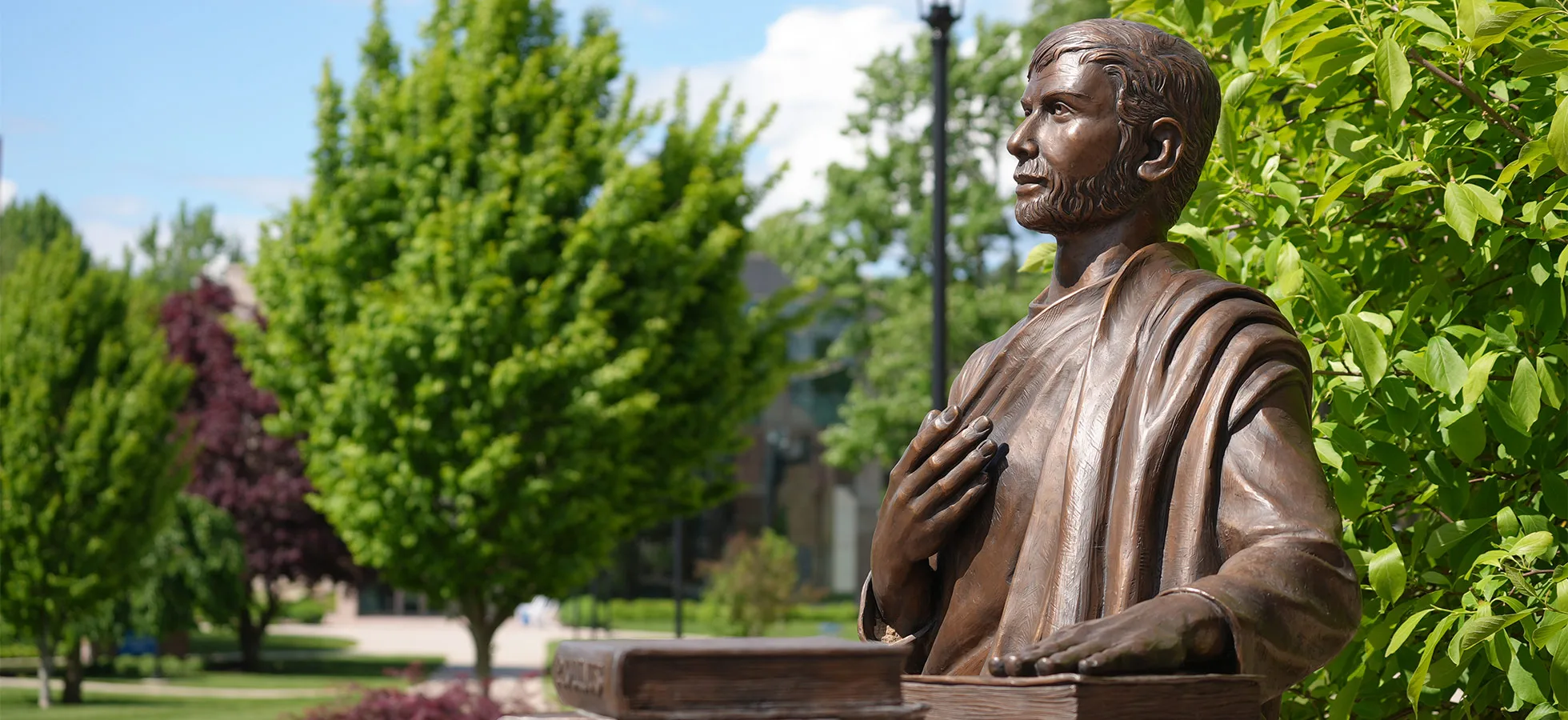Center for Civic Friendship Sponsors First Event Featuring Dr. Brian Robinette of Boston College

Assumption University’s newly established Center for Civic Friendship co-sponsored its first-ever lecture on Monday, September 16. Boston College Associate Professor of Theology Brian Robinette delivered a talk entitled “Contemplation and the Art of Friendship in Polarized Times,” which examined the spiritual practice of contemplative thought and proposed that the cultivation of interior life may be the key to openness and friendship with others. The Department of Theology organized the event in partnership with the D’Alzon Chair.
Provost and Senior Vice President for Academic Affairs Marc Guerra and Director of the Center for Civic Friendship Mary Jane Rein opened the lecture by introducing the major goals of the Center and promised that this event would be the first of many promoting issues related to fostering civic friendship and discussion on the Assumption campus.
“Assumption is proud as an institution to have the Center for Civic Friendship precisely because we agree about what the good is in terms of its existence, but we don’t agree about what it is in terms of its content, in terms of its specificity,” said Guerra. “This [lecture] is meant to be a way in which we can come back and discuss fundamental, important questions, that we agree about their performance, we agree about their fundamentality, but we might not actually agree about what the particulars of those things are.”
“We need to do a better job to safeguard the spirit of inquiry that is essential to the promise of the modern university,” said Rein. “While many institutions have turned towards civility, open debate and free expression, Assumption University aims to do those things by cultivating friendship.”
“We believe that teaching students to form positive relationships by attending to and caring for others will prepare them to become good citizens who possess habits of mind that are integral to a flourishing community and a well-functioning society,” said Rein. “Friendship means facing your differences with care for the other. The ability to listen despite strongly held differences of opinion will be a hallmark of the friendship building we aim to offer.”
Robinette described how the cultivation of an interior life through practices such as mindfulness and meditation, can help people grow a deeper understanding, openness, and awareness to both their own selves and others. Contemplation, he argued, can open capacities of attention and be a solution to the deep polarization dividing society. Awakening to the divine presence is the answer to consumerist culture. As people pay better attention to themselves, they access deeper awareness that relaxes that ego and leaves them better able to find common ground with others.
“The cultivation of the interior life is not only a way of fostering the art of friendship in its multiple dimensions, but a way of growing in our capacities for navigating the polarized times we live in, and maybe even living joyously in our midst,” said Robinette.
Robinette went on to say that through the art of contemplative knowledge, “…we may learn to return to ourselves and become present to the sheer gift of this moment, the only moment there really is.”
Many Assumption students were present and engaged with Robinette’s lecture, noting that they took important messages from the talk that aligned with the material in their courses.
“I really liked this lecture. It overall felt like it was a meditation,” said Hala Jaber ’26. “[Robinette] made some really good points on the combination of politics and friendship.”
“The lecture echoed a lot of things that I’ve been hearing in my Assumption education, like the power of community and thought, and how impactful and important it is being able to think in the company of friends,” said Caedynne Goodniss ’26.
A formal event inaugurating the Center for Civic Friendship will take place in Curtis Performance Hall on November 7 at 6pm. All are welcome to attend.
